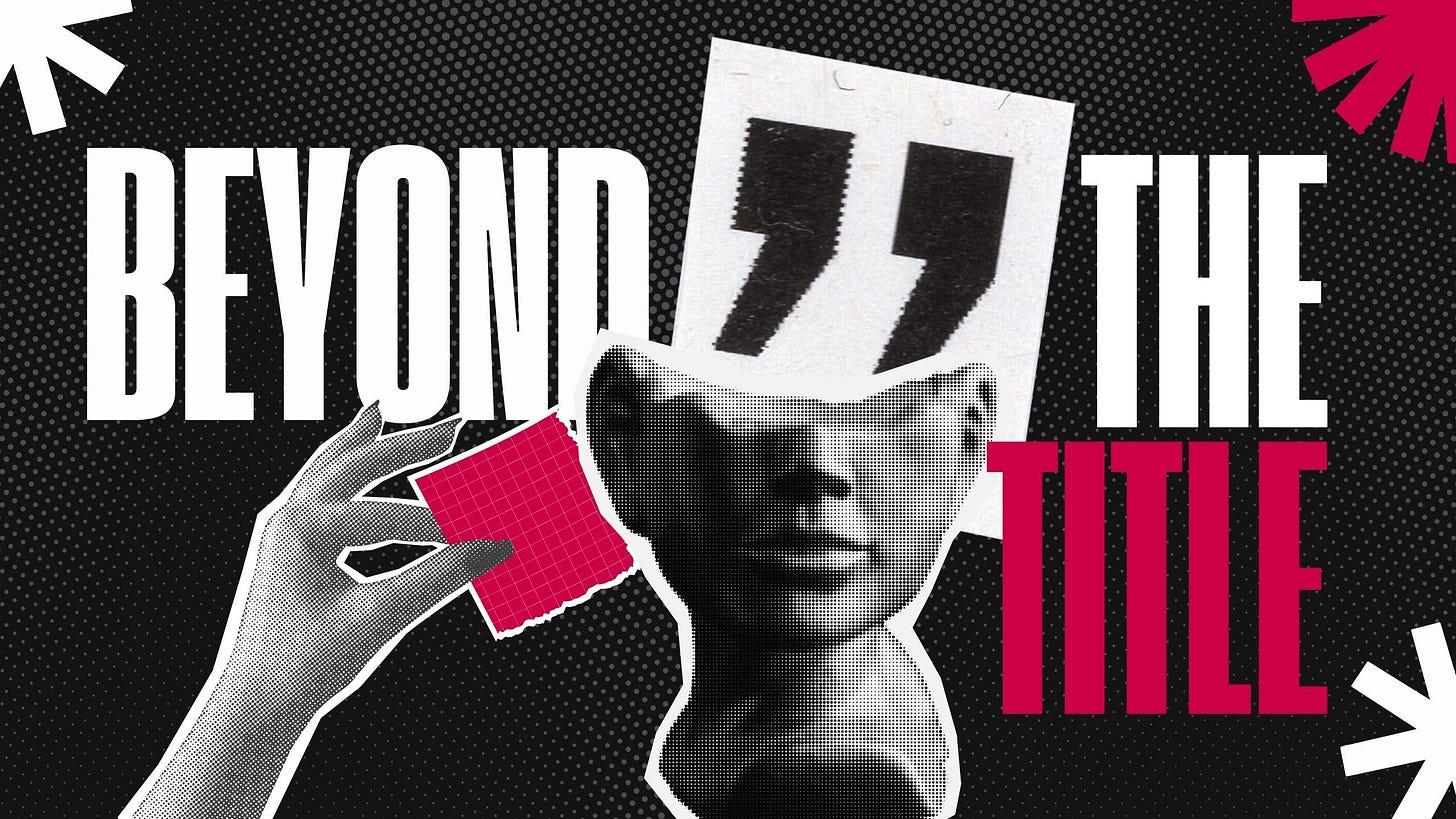The chase that defines us: What’s the cost of letting our career become our identity?
We’ve built a culture that rewards the chase and celebrates the hustle. What we often label as “selflessness” in our professional pursuits is, paradoxically, deeply tied to the ego.
In our recent Fem Renaissance Podcast, we touched upon the phenomenon of how we are moulded to turn our profession into our public identity. Starting with myself, even today, whenever someone asks me what I do, my instinct is to launch into a list of professional updates— how the business is progressing, the goals I’m chasing, the projects I’m managing. It feels almost automatic, as though my identity hinges entirely on my career achievements.
What I rarely say, but what feels far more true, is this: I enjoy learning to be a mother to my daughter, with all its joys and challenges. It’s in those quiet, unguarded moments—the softness of her tiny arms wrapped around me, the warmth of her trust—that I feel most accepted — by her, more so than by my work, my ideas, or myself.
Yet, I often catch myself withholding that thought. Why? Because I’ve let work define me for so long that it shapes not only how I see myself, but also how I communicate with the world. It dictates the way I measure my worth and craft my answers. This reflex isn’t unique to me; it’s the aftermath of a culture that places professional identity on a pedestal, teaching us to prioritize our titles over the fullness of our lives.
This realization came to me slowly, almost reluctantly. For years, I genuinely believed that my worth—perhaps even the meaning of my existence—was tethered to my professional contributions. My accomplishments weren’t just milestones; they became the ultimate measure of who I was. I carried that belief into every room I entered, letting my work not only speak for itself but also speak for me.
The narrative felt almost noble. The idea that “she worked tirelessly” seemed not just professional, but selfless—a badge of honour suggesting I was sacrificing for something greater. Coming from Asia, where “working hard before all” is a mantra ingrained from childhood, this mindset was part of my foundation, reinforced by societal applause for diligence and ambition. And yet, beneath it all, something didn’t sit right.
How did we let the concept of being “professional” take up so much space in our lives? When did we allow it to blur the line between what we do and who we are?
I began to notice cracks in the framework I had so carefully constructed. Could it be that what I once saw as noble dedication was, in fact, an overextension of identity? That the relentless pursuit of professional validation had crowded out the other, equally valuable parts of who I am?
The truth is, we’ve built a culture that rewards the chase. We celebrate the hustle, the grind, the trophies. What we often label as “selflessness” in our professional pursuits is, paradoxically, deeply tied to the ego. It’s not about the self as an individual, rich with sensory experiences and passions. It’s about the self as a scoring machine—a construct driven by achievement and performance, constrained by the need to prove its worth.
Something shifted when I realized how much of myself I had left unexplored. The parts of me that existed outside of meetings, metrics, and milestones felt like strangers. I began to wonder: Who am I beyond what I do? And why does that question feel so unsettling? And so I invite you to think about the same question I’ve been asking myself:
If you stripped away the resumes, who would you be?
It’s not always easy to separate identity from career, especially when the two have been so closely intertwined for so long. But if there’s one thing I’ve learned, it’s this: a career can enrich our life, but it shouldn’t define our identity. You are more than your title, more than your performance evaluation, more than the professional persona you wear like polished armour.
At the end of the day, the richness of life isn’t measured by the hours we log or the achievements we tally. It’s found in the expression of our inner voice, in all the various roles we play, in the moments that remind us of what truly matters, and in the fullness of what we allow ourselves to become.
The day when my daughter turned one year old, I looked at her and said to myself: she is one of the lifelong projects I am working on right now where I am indispensable, and my impact on this one will stand long after I'm gone.
So, who are you beyond the 9-to-6? Let’s start there.




